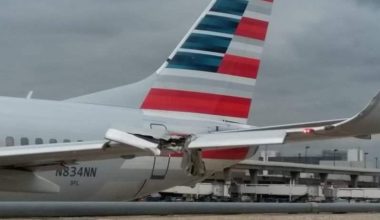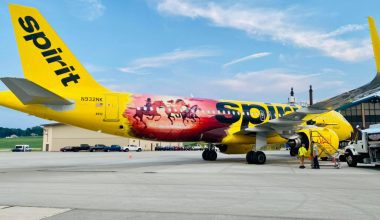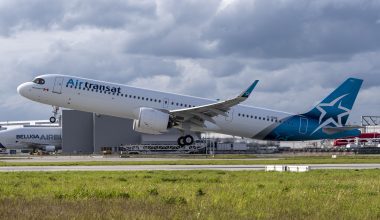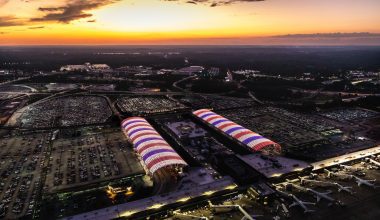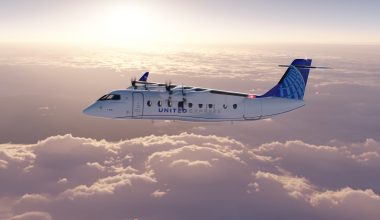The Boeing variants 777 and 747 have accumulated an overall successful career and made a huge impact in the aviation industry; they hold their own signature value to make them an exceptional outstanding product line from the Boeing family. Although many of the former 747s and 777s aircraft have been converted into freighters to continue their services in the cargo segment, the newer variants of the product lines with new innovation and technology are still tough competitors in the market.
Boeing 777 and 747 are the largest aircraft from the Boeing family with significant presence; the 777 vs 747 might be a tough comparison considering their significance as the best-selling products from the Boeing family. So, here we have prepared a list of different aspects of both aircraft to give a clear view of who takes the lead.
Also Read: Boeing Vs Airbus
Basics
The first on the list of Boeing 777 vs 747 comparisons is the basics of both products from the manufacturers that will give shed some light on the specialty of both aircraft.
The Boeing 777 variants are the unique combination of superior range; passenger preferred comfort, and outstanding fuel efficiency capabilities. The 777 variants have created long-range successful and profitable hauling opportunities for the carriers spread across the world. Further, the latest products from the 777 line, like 777-300ER, are even more compatible with additional upgrades; the 300ERs are the perfect beats to reduce cost and boost efficiency carrying the legacy of the amazing 777 lines of Boeing products. The Boeing 777 variants are the direct competition against the Airbus with the performance to outclass both 747 and its rival Airbus A380.

On the other hand, the 747 variants, which have been in the aviation market for over 50 years, have become a legend on themselves. The 747 variants are the bridges in the evolution of the aviation industry that has given birth to astonishing aircraft that meet future performance. The Boeing 747-8 variant focussed on offering the passengers the most private and accommodation amenities in the sky to make the flying experience more comfortable and fun throughout the journey.
Boeing 747 vs 777: Boeing Family’s Largest Aircraft
The Boeing family has a rich history of creating massive aircraft focussing on comfort and maximum luxurious amenities up in the air. Boeing’s work on creating some of the largest aircraft in the world has been so impactful that, in the list of 15 Largest aircraft in the world, the four aircraft from the Boeing 377-derived Guppy line freighter, the standard 747 and 777, including the 747-derived Boeing Dreamlifter were a success story.

In the Boeing 777 vs 747 comparisons, the size of the aircraft is another crucial component. Although both Boeing 777 and 747 are the largest products from the Boeing family, the 747 product line is noticeably larger than the actual size of the 777 product line. However, it was the initial plan from the very beginning when manufacturing these popular products; the Boeing family intended to build a massive aircraft to surpass its predecessor, the goal which was accomplished by the 747. But, on the other hand, the 777 product line was never meant to be the largest product of the Boeing family; the aircraft was built slightly less large than the 747 variants, so it would excel as the large long-haul vessel that could cover the markets that the 747 was too big to fill.
Boeing plans to deliver the final models of the cargo giant 747 to Atlas Air in 2022, which will mark the end of the 747 product line and will make the Boeing 777 product line the biggest aircraft from the family.
Physical Specification
Boeing 777 and 747 have both been the most successful product line from the Boeing family with the industry-leading specifications of their time. Both of the aircraft went through extensive modification and upgrades to compete with the rivals and fit the customers’ demands. The frequent upgrades and modification of the product lines have given birth to many latter versions of the products lines like 747-400s, one of the variants from a total of two 747 variants, are still in services with the airlines across the world. Similarly, the 747-300s have dominated both cargo and commercial segments in the aviation industry, especially passenger aircraft. Similarly, the 777 product line gave birth to advanced aircraft like 777-200LR and 777-300ER with 8,555 miles and 7,370 range.
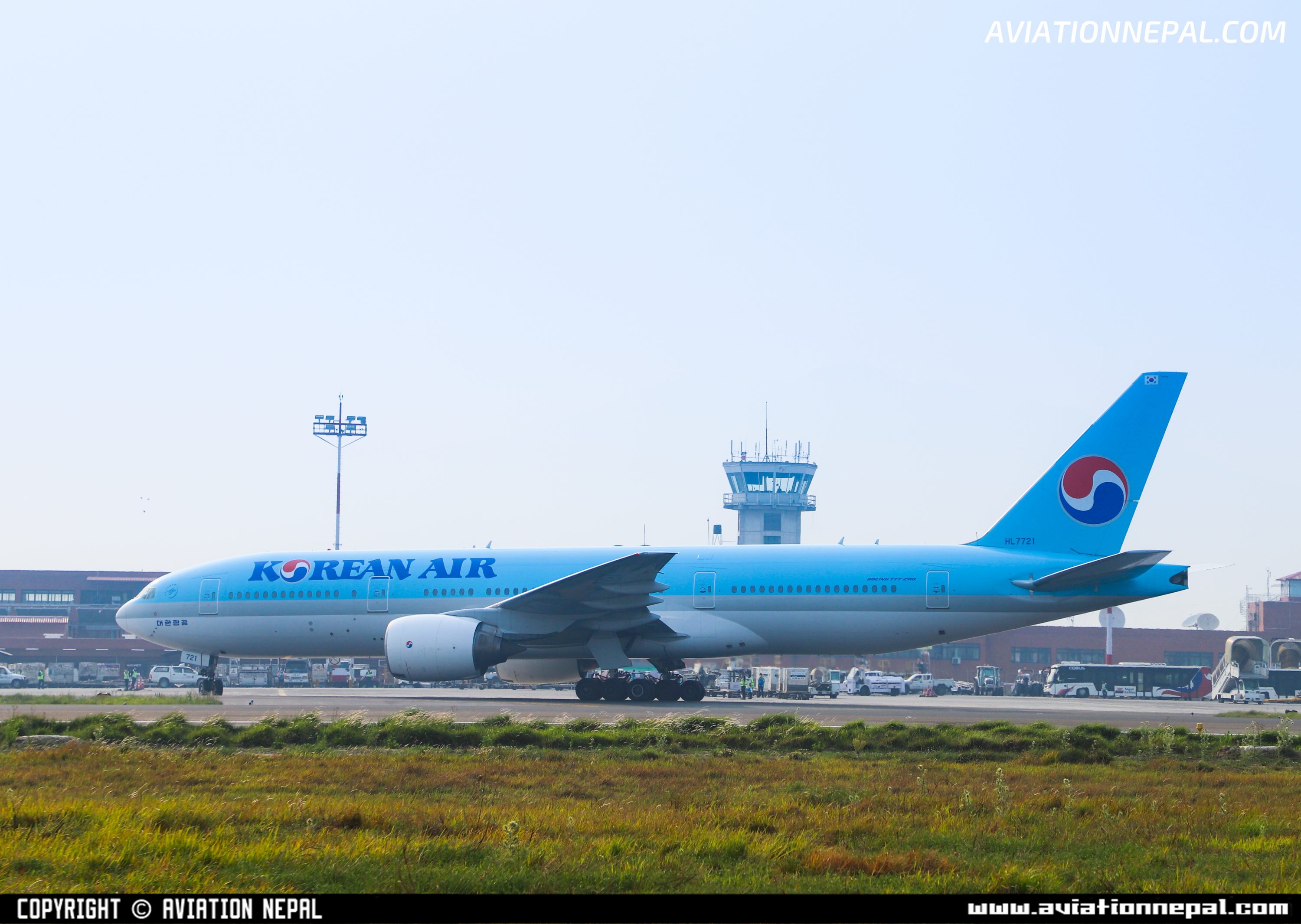
Here is some specifications comparison to make things even more cleared in the 777 vs 747 debate.
| Specs | Boeing 747-8 | Boeing 777-300 |
| Seat | 410 | 396 |
| Mileage | 7,730 miles | 7,370 miles |
| Length | 76.3 meters | 73.9 meters |
| Wingspan | 68.4 meters | 64.8 meters |
| Height | 19.4 meters | 18.5 meters |
| Engines | GEnx-2B | GE90-115BL |
| Tail Height | 19.4 meters | 18.5 meters |
| Cabin Width | 6.1 meters | 5.87 meters |
| Maximum Cargo Capacity | 6,225 cu | 7,640 cu |
| Maximum Take-off Weight | 4,47,700 kg | 3,51,500 kg |
| Maximum Landing Weight | 2,20,128 kg | 2,51,290 kg |
| Fuel Capacity | 2,38, 610 liters | 1,81,283 liters |
Fuel Efficiency
So in the 777 vs 747 comparison, which of the aircraft is more fuel-efficient? The Boeing 777 variants are equipped with the 2-engines like 777x-9 set up, while the Boeing 747-8 variant is powered by four engines. With the intention to overshadow its predecessor and competitors, the 747 products designed to fly over the Pacific certainly consume more fuel than the 777 variants. In fact, the 747-8 variant from Boeing only offers half the amount of power that is produced by the twin engines of the 777x product line.

Also, the four-engined 747 products are heavier than the 777 lines, the Boeing 747-8 burns about 10,114 L/hr at 929 km/hr @ 32,000 ft costing around $7,150 per hours or approx $15.31 per seat/hr with total operating cost equaling to around $13,450 per hour. On the other hand, the Boeing 777 variants have a total operating cost of $9,366 per hour. The newer technology on the latter version 777 product like is designed to increase the aircraft’s performance with fuel-efficient built making it an ideal choice in the fuel consumption comparison segment.
Safety
The aircraft’s safety record is the essential part of the product line that can decide the future of the product line. The example can be seen in the performance of the 737 MAX that was banned for two years in March 2019 after two crashes. The 737 MAX plane crashed in the Java Sea shortly after takeoff from Jakarta in Indonesia in October 2018, and the same model crashed in Ethiopia in March 2019 that caused the death of a total of 346 people.
Coming back to the 777 vs 747 comparisons, the Boeing 747 is one of the safest aircraft in the aviation industry. However, the older retired variants of the 747 line, like 747-100 and 747-200, were involved in 166 aviation incidents, including the 63 hull losses that resulted in 3,746 fatalities. The main issue related to the incident was with the door locking mechanisms that gave the false locked reading when it wasn’t completely sealed. The issues were later fixed on the latter variants from the product line like 747-100s and 747-200s, completely redesigning the 747 variants.
Also Read: Airbus A320 vs 737 : comparison between two narrow-body aircraft
Similarly, the 777 product line, which was designed with the original purpose of replacing first and second-generation jetliners from the Boeing family, does its job quite perfectly. The 777 products from Boeing has been involved in only 29 aviation incident, including the eight hull losses that resulted in 541 fatalities, making it statically safest aircraft in the aviation industry. Furthermore, the new 777X variants from the products line are expected to be even safer in the 777 lines, introducing a new level of safety in the industry.
Boeing 777 Vs 747: Price
After everything is said and done, the pricing of the products also determines whether they are worthy of the price tag after evaluating their aspects and performance. The current market price of the passenger 747-8 is around $418.4 million in 2021, and the Boeing 777-9 variant costs approx $442.2 million in 2021.
The latter version of the 777 product line certainly costs more than the previous predecessor. However, technological improvements, including eco-friendly, future-proof, and fuel-efficient features,, make them worthy adversaries. So, betting on the cutting-edge product line of the 777 variants may be a better deal than outperforms the 747 variants in performance, fuel, efficiency, safety, and specifications.

